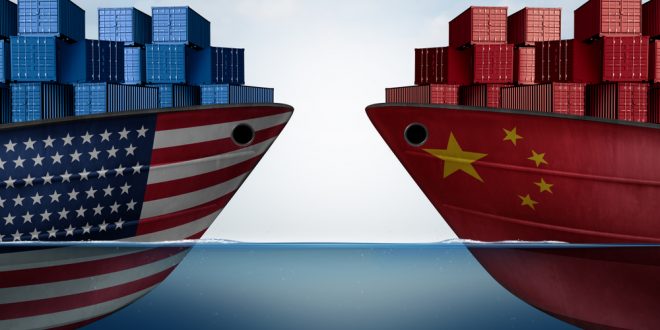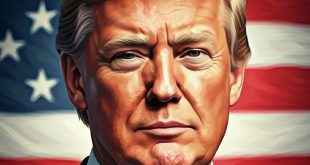One of US President Joe Biden’s toughest challenges is maneuvering America’s relationship with its biggest economic enemy; namely China.
when Biden holds a virtual summit with Chinese counterpart Xi Jinping later on Monday, issues such as tariffs, supply chain bottlenecks, subsidies, Chinese property sector debt crisis and the global energy cost hikes can make a strong appearance in the bilateral discussions.
China and the United States are still codependent, in terms of American consumers’ dependence on numberless products manufactured in China’s factories and US companies’ dependence on spare parts sourced from Asia, while Wall Street money managers are monitoring each and every breath in the Chinese markets.
Biden is expected to emphasize the areas in which Beijing and Washington have common interest and therefore, can cooperate despite growing tensions over Taiwan, Hong Kong and human rights, which have driven a wedge between the two countries and their economies, and could complicate the talks.
Observers have warned of false hope that the Xi-Biden virtual summit will mend the central differences between China and America or change the general trajectory of their chronic rivalry. Under the best circumstances, Biden and Xi can try and come up with common ground for a new kind of competitive coexistence, instead.
Here are some issues on the economy the bilateral talks can handle:
Trade and Tariffs
Business groups have pressured Biden’s administration to consider removing tariffs on China to help ease the US inflation levels. Treasury Secretary Janet Yellen said on CBS’ “Face the Nation” that such a move is “under consideration.”
But this development may not be realized as Biden recently reached an agreement with the European Union to ease Trump-era sanctions on aluminum and steel, his administration continues to criticize China’s trade practices and subsidies.
There are still serious US concerns with China’s state-centered and non-market trade practices that were not addressed by Beijing.
According to US officials, supply chain issues and tariffs may not on Biden’s agenda for the meeting, but it is possible that Xi will tackle this issue.
China’s Property Sector
Biden’s administration is watching China’s property sector and its debt crisis which would bring about potential global consequences if China’s economy happens to slow down more than expected. The country’s GDP grew at its slowest pace in a year last quarter.
Financial markets were upset in September after the developer Evergrade warned it could default on its massive debts; a crisis that sparked concerns of contagion across the real estate industry worldwide, which accounts for as much as 30% of China’s economic output.
Evergrande has recently managed to pay some interest payments and stave off a collapse. But a mountain of debt obligations is looming and will be due next year. Several other Chinese developers are in a similar situation as demand for land and properties retreats.
Energy and Climate
China and the United States have recently reached common ground on climate, a development that is still surprising observers at the COP26 climate talks in Glasgow with a joint pledge to cut carbon emissions. World’s biggest economies are biggest polluters, and both feel the pain of an energy crunch exacerbated by attempts to transition to greener power supplies.
The Chinese government ordered coal mines to produce as much coal as possible as winter approaches. Biden similarly urged OPEC to pump more oil to ease rising fuel prices which were at a record high in California over the weekend.
Neither China, the world’s biggest coal consumer, nor the United States signed on the COP26’s deal in which a number of countries committed to phasing out the use of coal. They both said they will phase down its use.
 Noor Trends News, Technical Analysis, Educational Tools and Recommendations
Noor Trends News, Technical Analysis, Educational Tools and Recommendations





